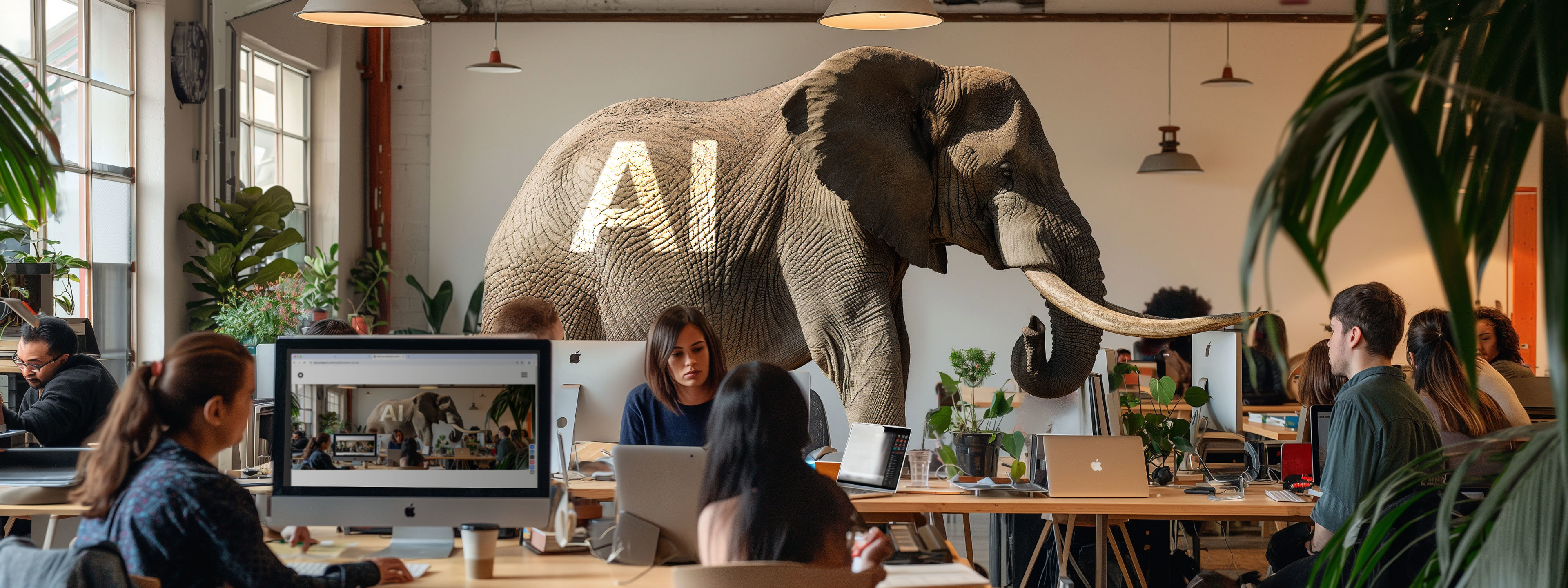Generative AI and addressing the elephant in the room
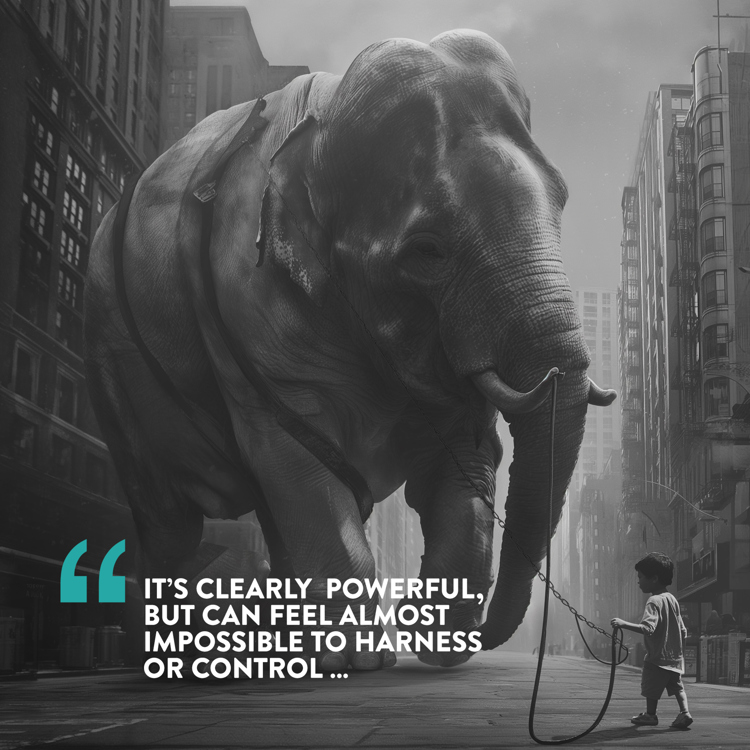
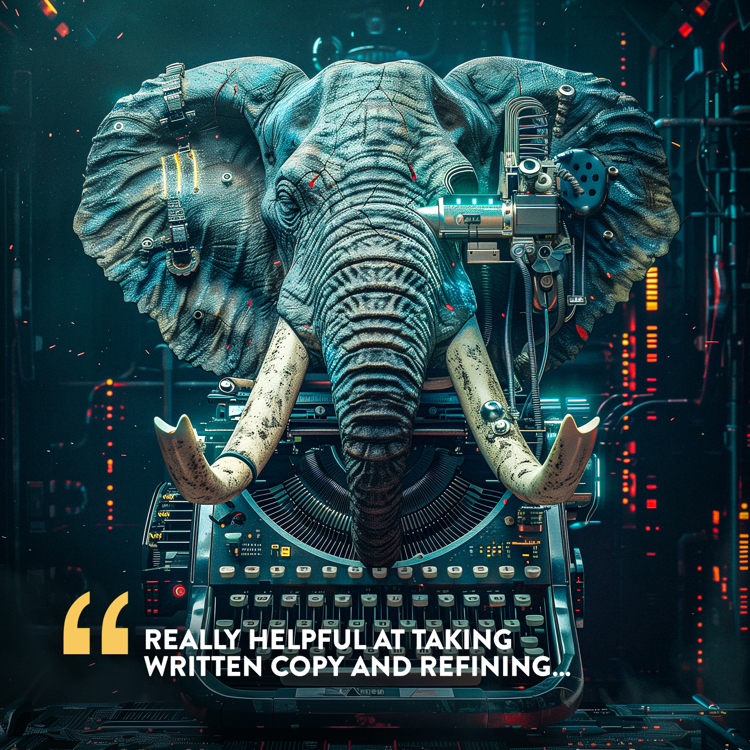
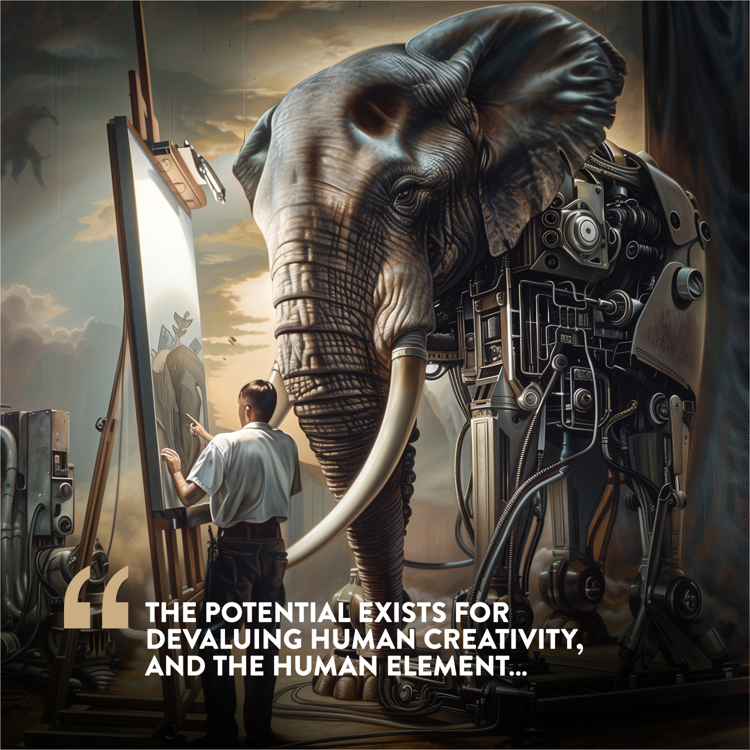
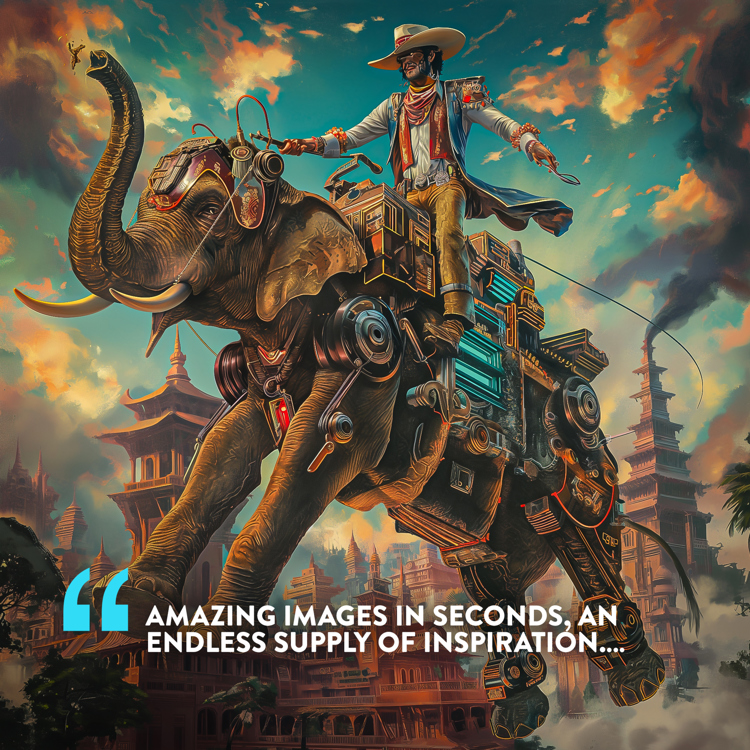
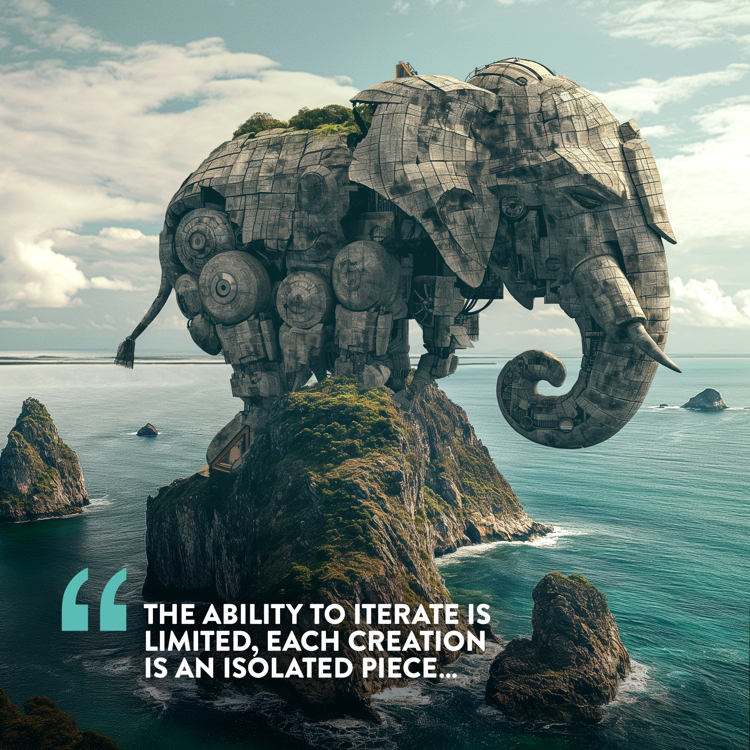
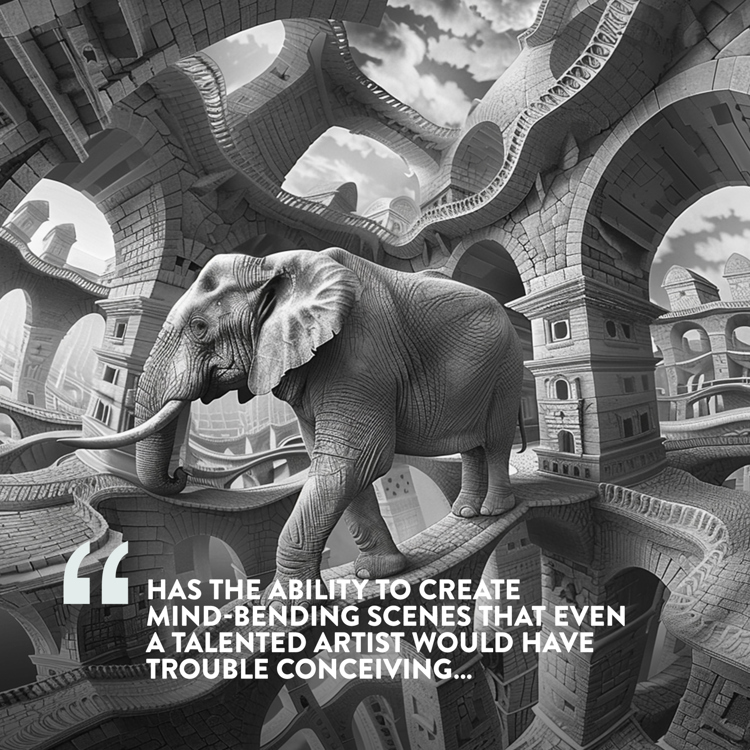
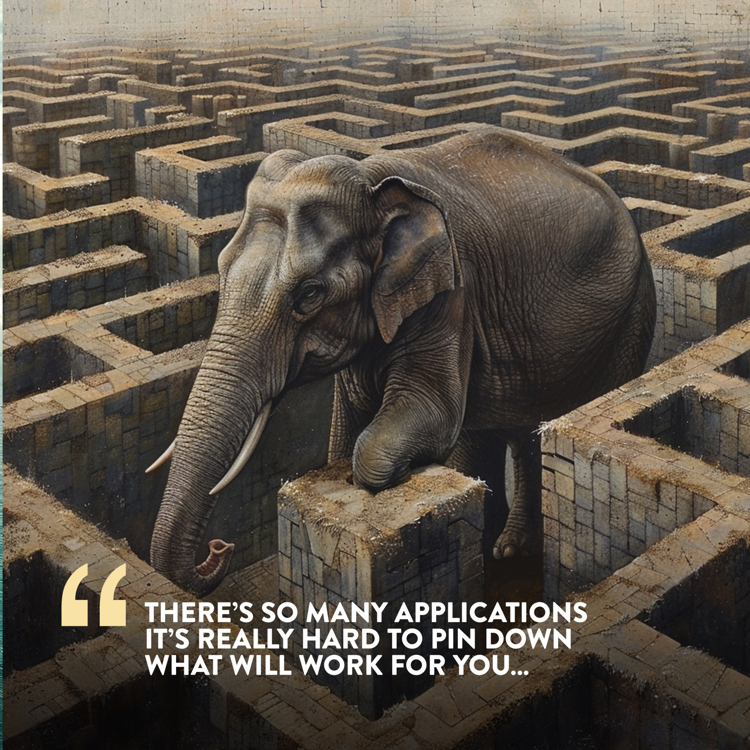
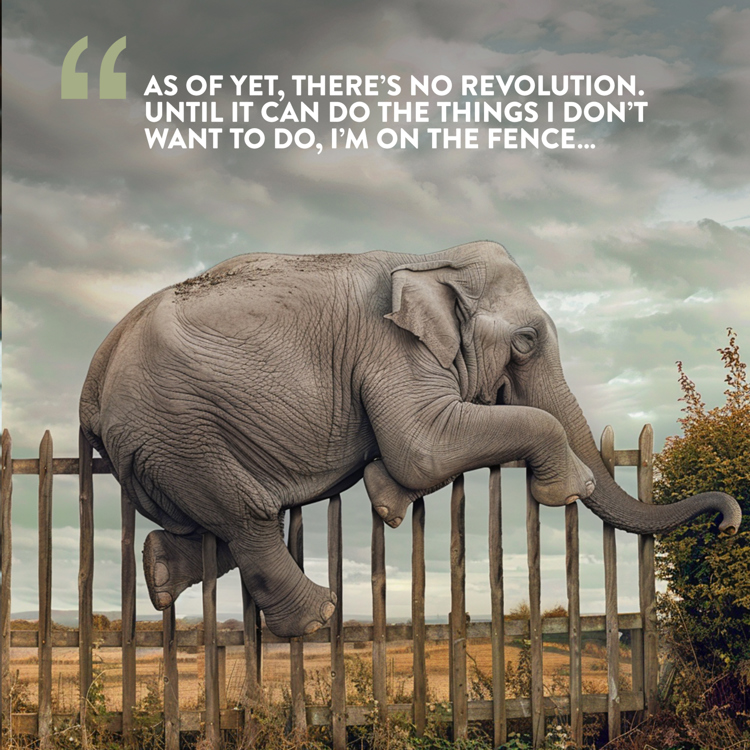

 The GenAI is out of the bottle
The GenAI is out of the bottle
Generative AI in all its magical forms has arrived, and like it or not it’s here to stay. In fact, unless you’ve spent the last year in isolation, you will have noticed that AI is not just here… it’s everywhere.
And, depending on which article you read, it’s as much a cause for excitement as a reason to panic. It may take your job, but also make it easier. It will revolutionise your life, and possibly deep fake your existence.
 Whatever your opinion, it’s worth considering that the version of AI you are currently experiencing is the worst it will ever be. It will only get better. Much better. So whether you choose to embrace it as an exciting opportunity or not, the simple truth is you cannot escape it.
Whatever your opinion, it’s worth considering that the version of AI you are currently experiencing is the worst it will ever be. It will only get better. Much better. So whether you choose to embrace it as an exciting opportunity or not, the simple truth is you cannot escape it.
So how does that actually affect me?
Now that some of the dust has settled around AI, we thought we’d give the low-down on what we have found so far and share some of our experiences when adopting this revolutionary technology.
 Firstly, AI is not a new thing for Oakwood, we’ve been using it within various software applications for several years. However, the ways in which we are using it has changed dramatically and the variety of applications available has literally exploded. Here’s a breakdown of some of our regular touch points.
Firstly, AI is not a new thing for Oakwood, we’ve been using it within various software applications for several years. However, the ways in which we are using it has changed dramatically and the variety of applications available has literally exploded. Here’s a breakdown of some of our regular touch points.

 How do we feel?
How do we feel?
As a collective, we are really excited by the opportunities that generative AI will offer, but also very aware that this new technology should be treated as just another tool rather than a single solution. It cannot formulate ideas, or certainly not make those magical connections that the human brain can. In order to create something truly original, it needs our thinking. And this is not always straightforward. It takes time, a lot of time, and trial and error to get the results you want.
 I’m sure this will improve rapidly and things will get easier, but currently AI can feel difficult to harness. And, as with any new technology, it’s essential to understand the ever-evolving implications of using it, and be transparent with clients and each other when adopting it. We are constantly monitoring the ethical considerations and balancing the advantages of AI with our human-centric approach and industry expertise.
I’m sure this will improve rapidly and things will get easier, but currently AI can feel difficult to harness. And, as with any new technology, it’s essential to understand the ever-evolving implications of using it, and be transparent with clients and each other when adopting it. We are constantly monitoring the ethical considerations and balancing the advantages of AI with our human-centric approach and industry expertise.
As a team of creatives, we also share concerns over IP, copyright, bias and also the overall quality of the output. Creativity is at the heart of everything we do and there’s a potential for devaluing not only the creative process, but art and artists themselves. It will be interesting to see how AI affects and shapes the industry in the future.
 That being said, the overriding emotion is that of opportunity and excitement. We will continue to investigate the opportunities AI offers for creative and business needs, whilst also exploring the blurred lines of copyright and fake content.
That being said, the overriding emotion is that of opportunity and excitement. We will continue to investigate the opportunities AI offers for creative and business needs, whilst also exploring the blurred lines of copyright and fake content.
It may not be the game changer yet, but if used correctly and in collaboration with a great human team, AI should allow us to create even better work – great news for us and even better for our clients. We won’t let the elephant in the room negatively effect the studio! Don’t just take my word for it here’s a selection of thoughts from Team Oakwood…
Opinions from the wider team
 Upsides
Upsides
- It’s opened doors to create imagery which otherwise would be too complex on small budgets.
- Almost like a smart dictionary to replace words and improve grammar quickly.
- It quickly gives another point of view although I may not always follow it. Helps me to get out of a brain block.
- The generative fill in Photoshop is really impressive, not sure it’s good enough for high-res large format though.
- AI voiceover has been a real help to test scripts for flow and length.
- Can create crazy videos that defy gravity, the laws of physics, and logic.
- I do see Gen AI as a tool to streamline some mundane tasks but will require short-term effort to test and organise systems.
- Some apps are great time saving tools (if you give them the right prompts to work with) but the others are just cool toys to play with.
- Chat GPT has often nudged me in a helpful direction and then I can enhance what has been generated.
- I generate my own stock in Midjourney and then use those as individual assets to composite original pieces. This feels more creative and more expressive than simply relying on standard stock photography.
- Photoshop AI is really good at certain tasks and can save massive amounts of time in some instances.
- Firefly was fairly unique in how you can create bespoke themed typography although that’s now disappeared into Adobe Express.
- Midjourney creates results that look like they would have taken weeks to make.
 Downsides
Downsides
- Leveraging this technology is really time consuming, you don’t get what you want without endless trial and error.
- AI generated work needs to be checked for accuracy, both written and visual. Chat GPT actually gives false information!
- The quality of Gen AI imagery is currently just not good enough for final outputs.
- We don’t really do repetition – whilst we operate in the same landscape, every day is different. There’s no real opportunity to take advantage of automating repetitive tasks.
- You don’t get what you ask for! Prompt writing is another language itself.
- A lot of it just feels fake, I think people want authenticity.
- AI generally falls over when asked to connect multiple concepts or abstract items across multiple paradigms, something humans are often exceptionally good at.
- As an artist/creative it’s hard to feel good about where the machine learning comes from!
- It has no conscience, lots of prejudice and bias within outputs.
- The potential exists for devaluing human creativity, and the human element, relationships, and industry experience remain essential despite AI integration.
- Clients may perceive AI as an instant solution, potentially leading to demands for cost reduction.
 It’s hard to know how to protect client information, understanding licensing rights and copyright laws… It’s all very vague.
It’s hard to know how to protect client information, understanding licensing rights and copyright laws… It’s all very vague.- The whole landscape doesn’t feel very ethical – there are so many questions around IP, privacy as well as the amount of power AI requires.
- All AI work needs thoroughly scrutinising as often it doesn’t stand up to close examination.
- AI models are trained on what’s most common, rather than what is considered the best so it stands to reason that over time the output will become more and more average.
* Images courtesy of AI. Ideas formulated by humans.
